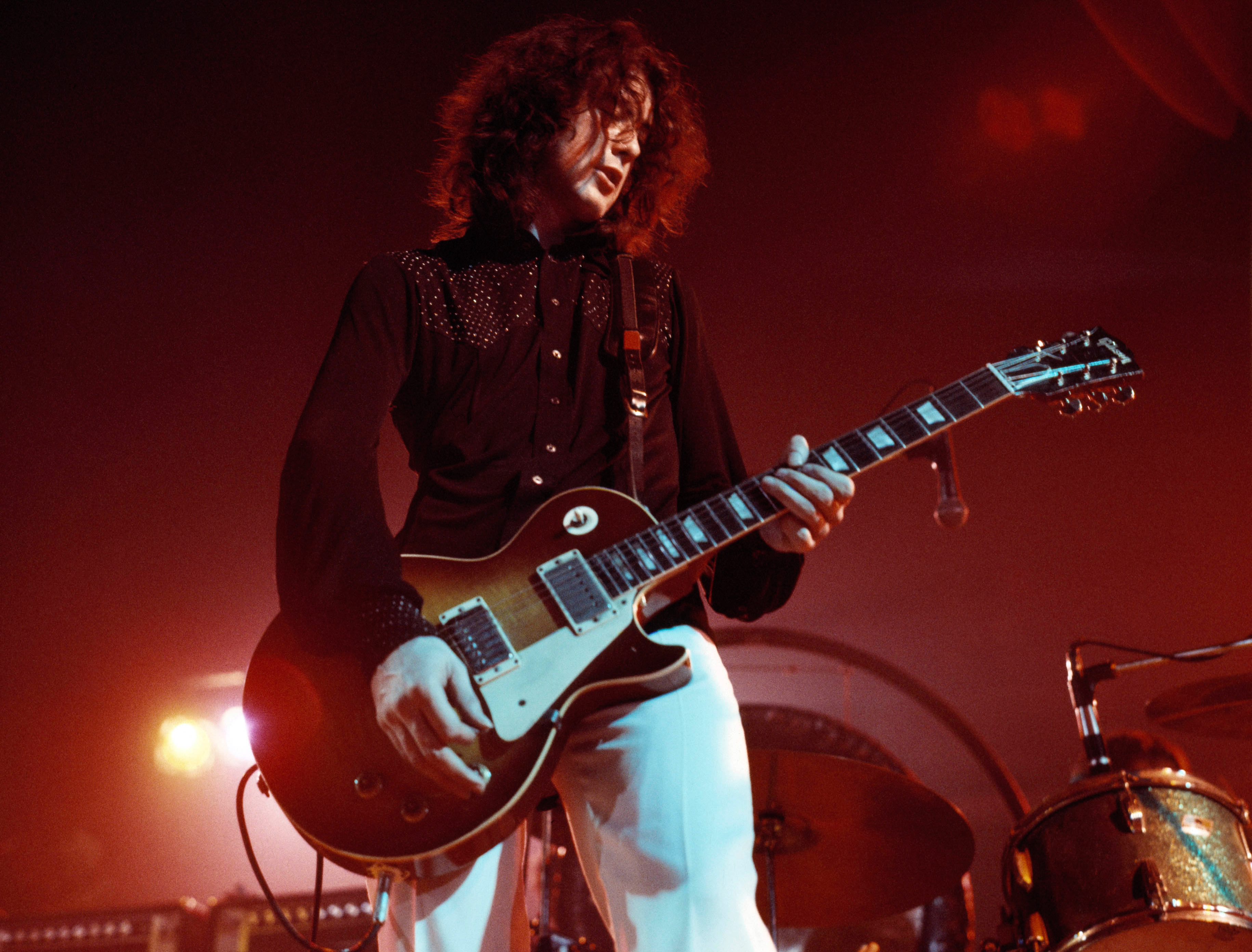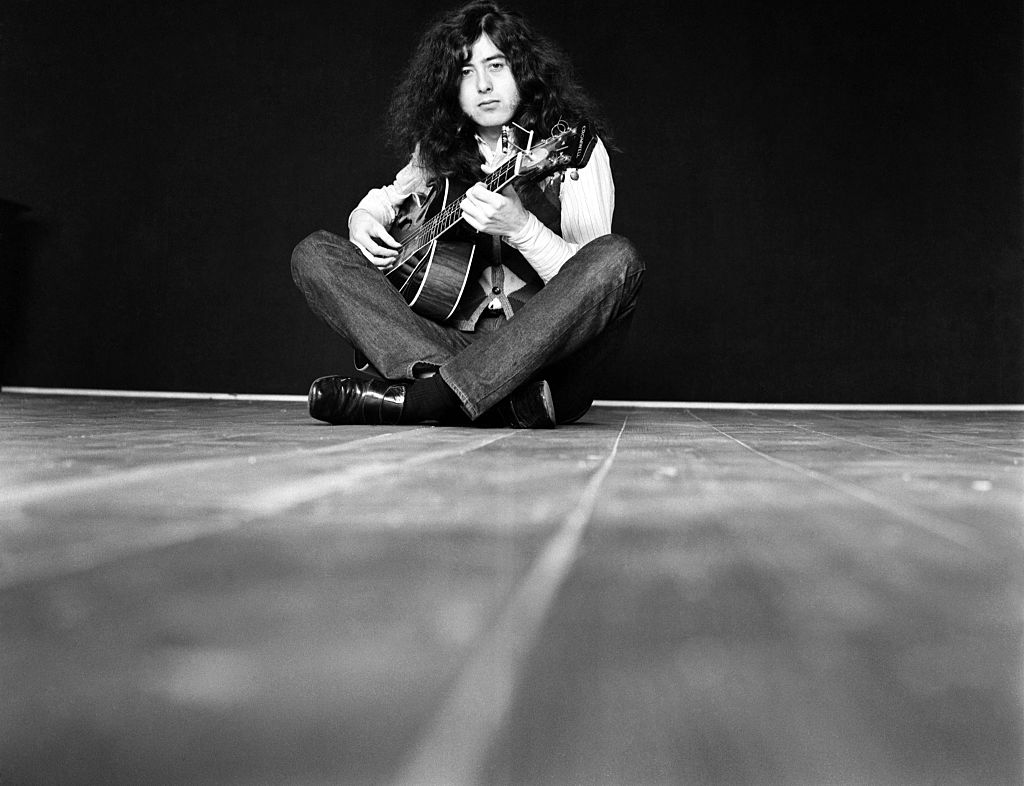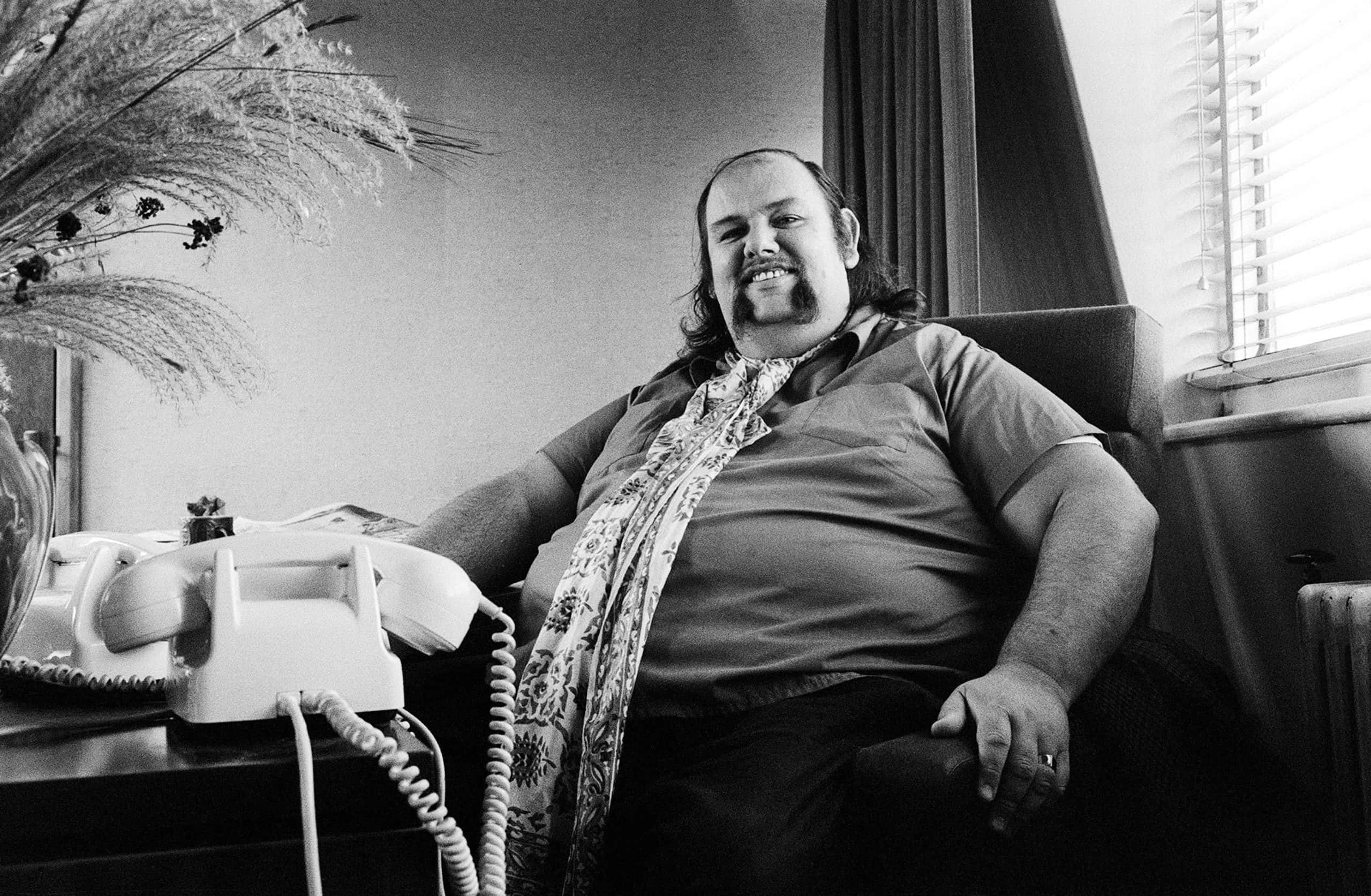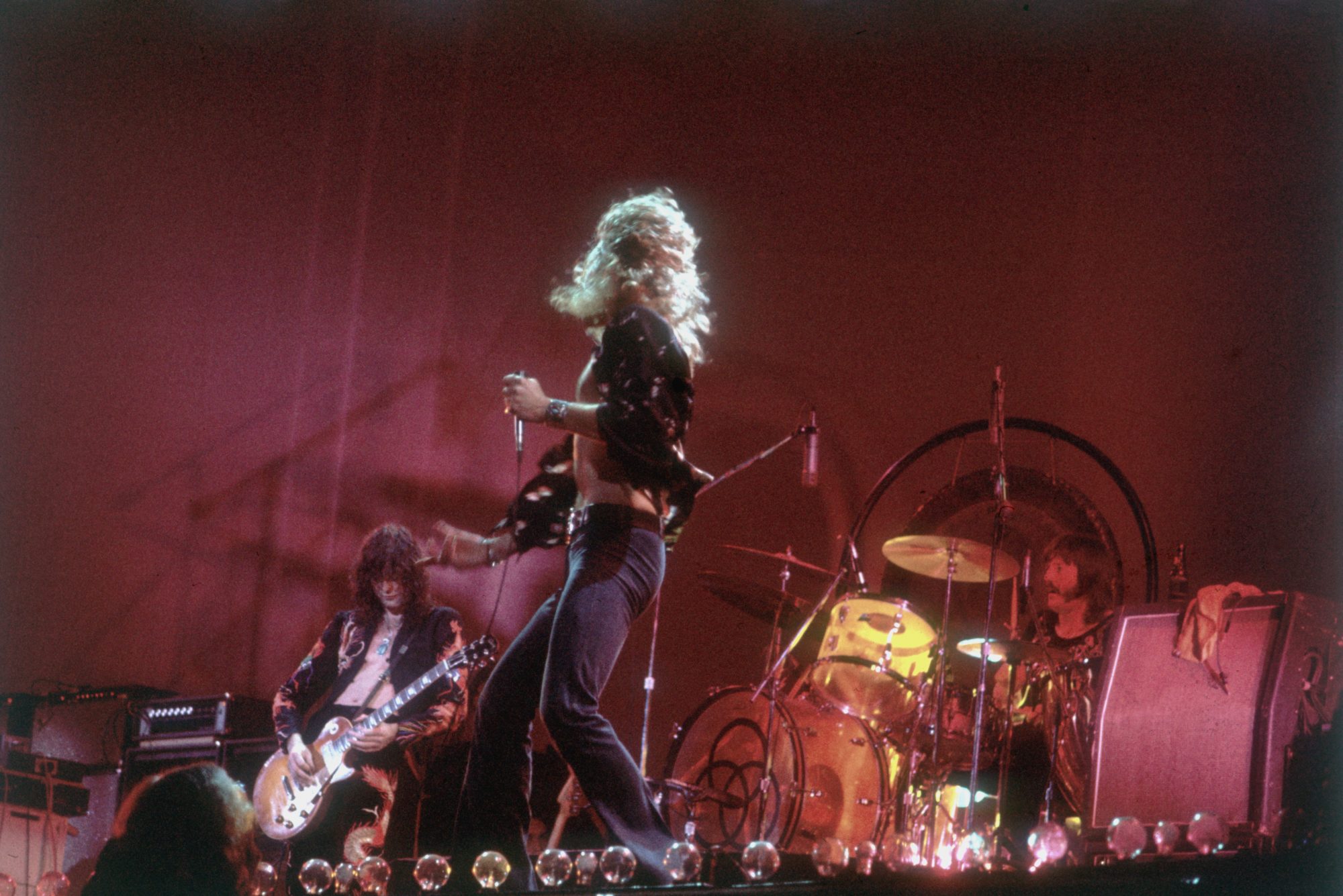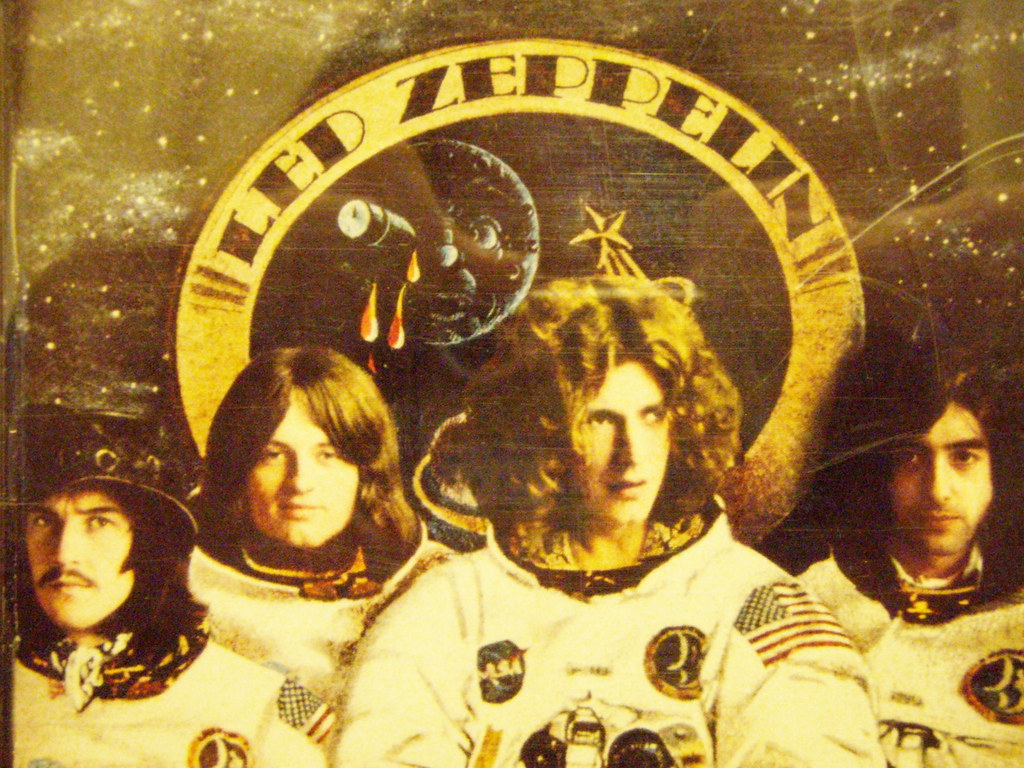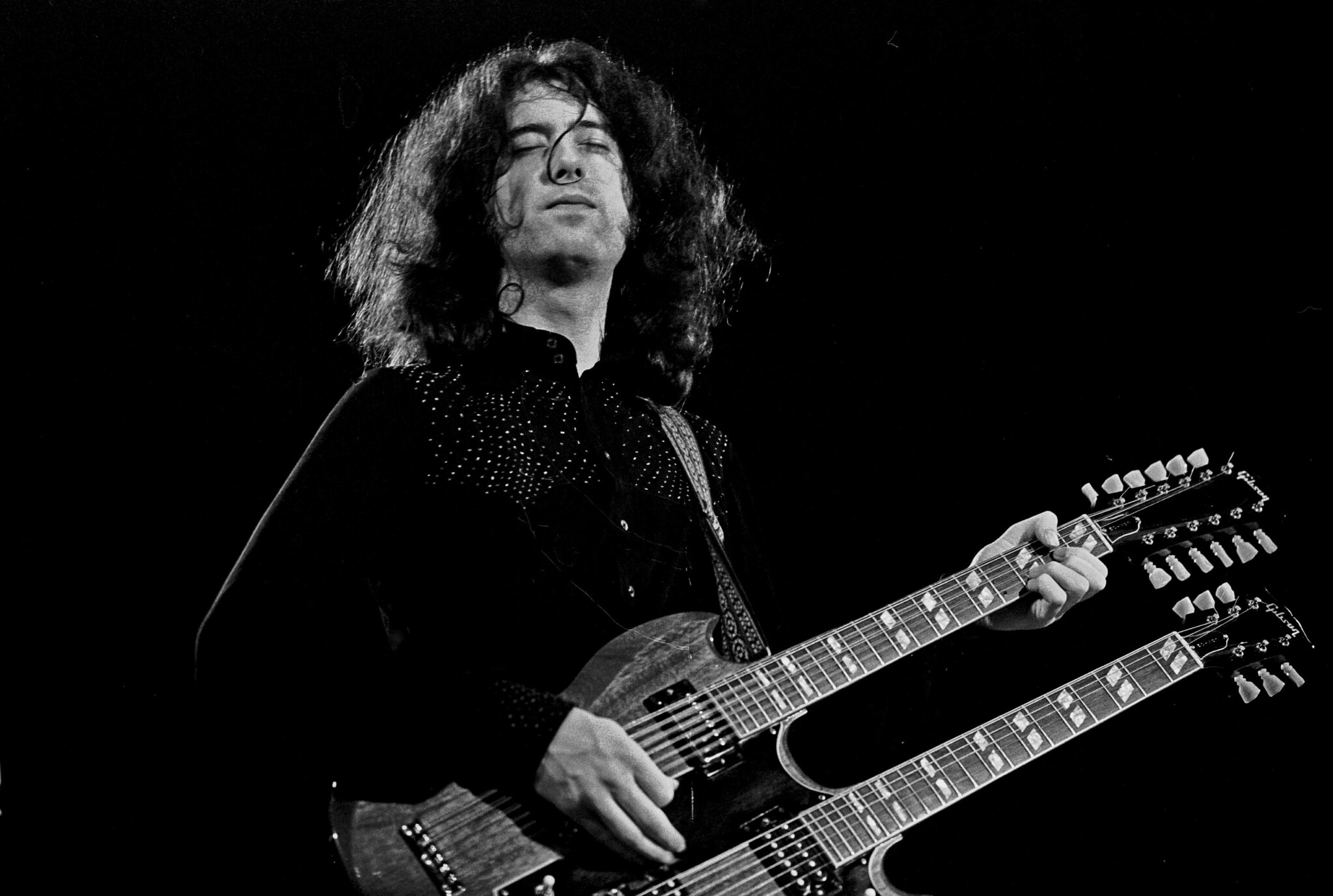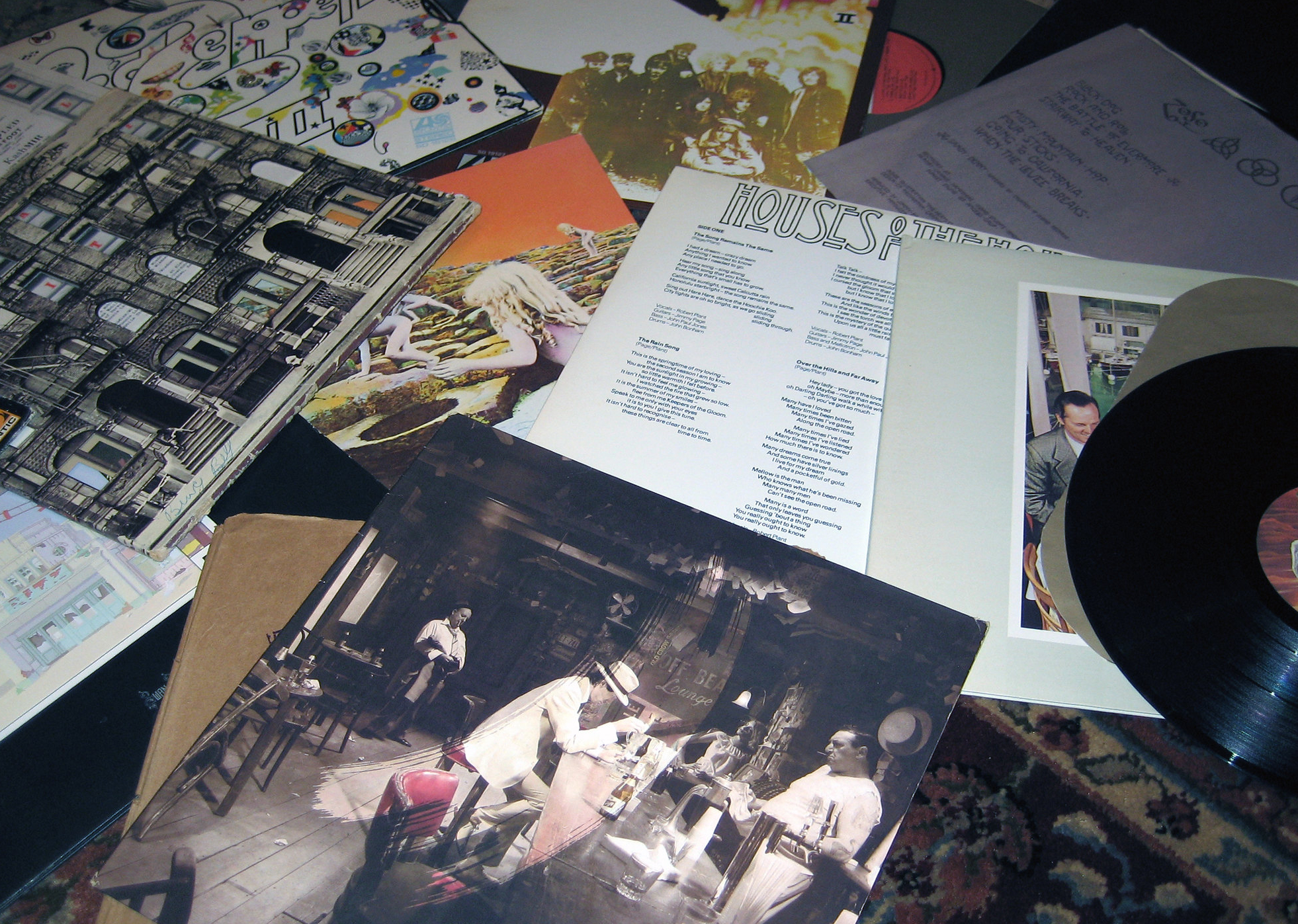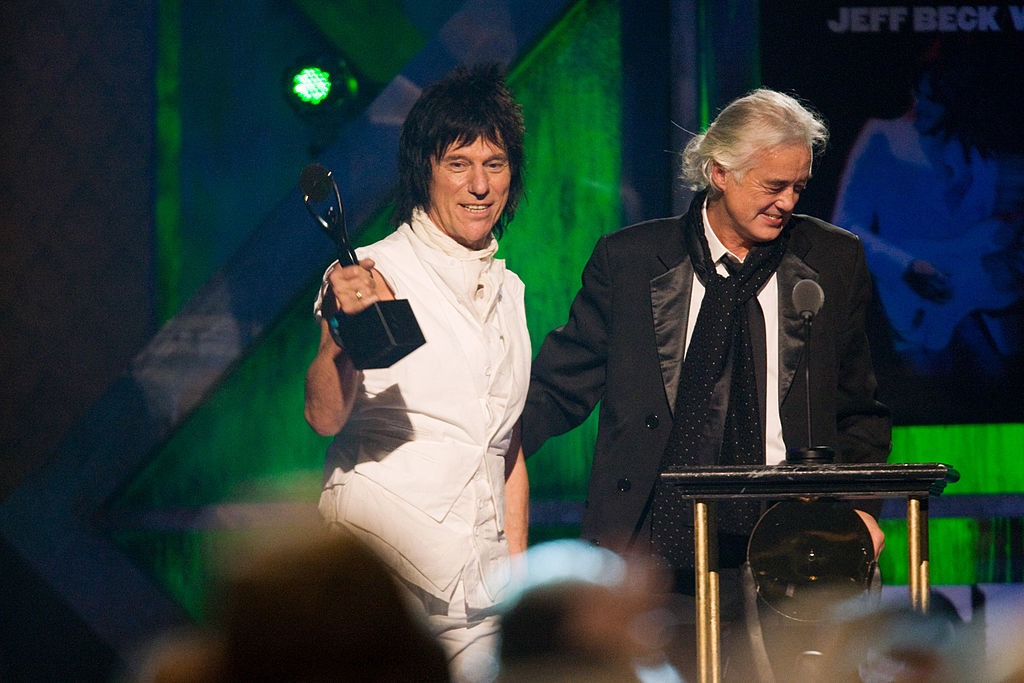One of the greatest guitarists of all time, Jimmy Page was the genius behind Led Zeppelin's iconic, hard rock sound. But behind the rock god image, Page cultivated enough dark secrets, questionable behavior, and interpersonal problems to fill a stairway to heaven.
1. He Happened Upon His First Guitar
Born in a West London suburb in 1944, Jimmy Page and his family moved to a house on Miles Road in Epsom, Surrey. Upon moving into his new home, Page found an old Spanish guitar waiting for him. Whether it was left behind by the previous occupants of the home or placed there as a gift by a family friend, the Pages never found out.
Page wouldn’t give the guitar very much attention at first, but when he finally did notice it again, his whole world changed.
2. He Started Playing For A Surprising Reason
At the age of 12, Page picked up that old Spanish guitar and learned a few chords from a friend at school. But this is Jimmy Page we're talking about. He quickly surpassed his friend’s limited knowledge and began to self-teach by playing along to records.
So, why did one of the world’s most influential musicians decide to pick up the axe? Because, in Page’s own words, “I was bored”. Soon, his casual habit went national.
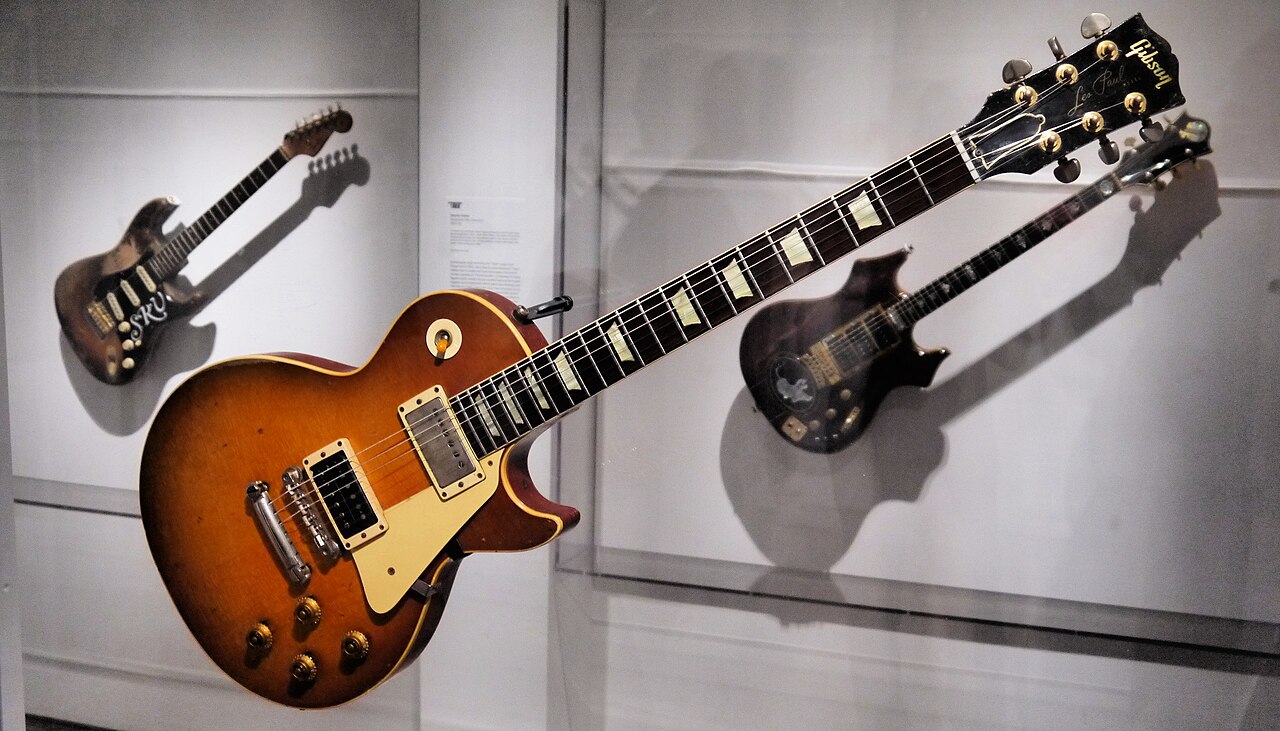 Eden, Janine and Jim, CC BY 2.0, Wikimedia Commons
Eden, Janine and Jim, CC BY 2.0, Wikimedia Commons
3. He Had An Unhealthy Obsession
Page may have started guitar from boredom, but he quickly became fixated on the instrument. As Page’s obsession with the guitar grew, he would bring it to school daily so that he could practice whenever he got even a couple of minutes to do so. This irked certain teachers and resulted in Page's guitar being confiscated every day, too. Eventually, this turned into a crisis.
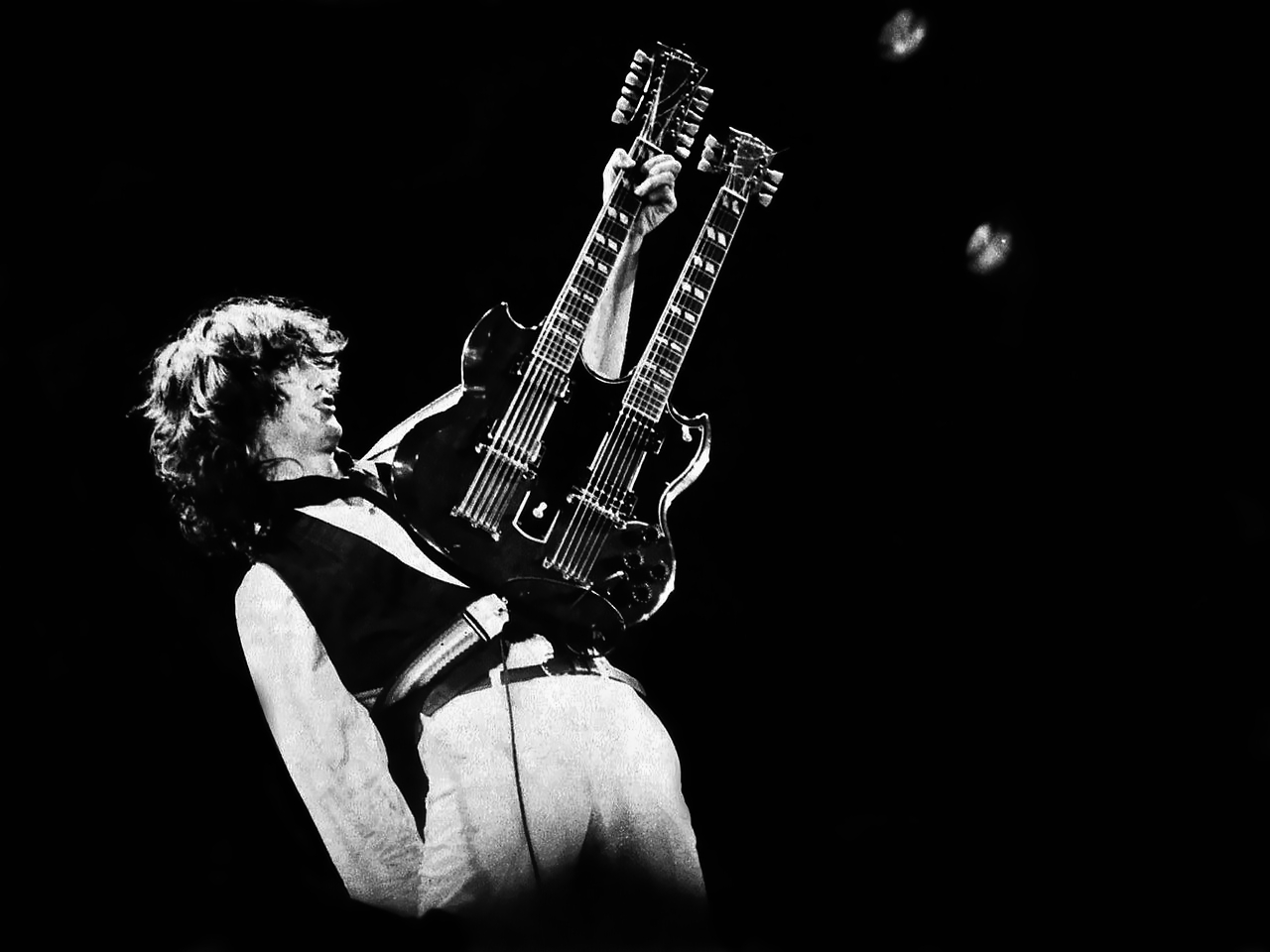 Andrew Smith, CC BY-SA 3.0, Wikimedia Commons
Andrew Smith, CC BY-SA 3.0, Wikimedia Commons
4. He Dropped Out
The school’s Deputy Head, Miss Nicholson, did not approve of Page’s musical ambitions. Her scathing dismissal of Page’s dreams was the last straw. He passed the minimum tests required and left school at 15, the youngest age permitted in Britain at the time.
Page would, of course, turn out to be right about chasing his dream—but his teacher had a point about the dangers of his obsession.
 Pascal P Chassin, CC BY-SA 4.0, Wikimedia Commons
Pascal P Chassin, CC BY-SA 4.0, Wikimedia Commons
5. He Was A Teenage Success Story
Upon leaving school, Page was discovered by singer Neil Christian, who asked the 15-year-old prodigy to join his touring band, the Crusaders. Page enthusiastically accepted the offer and toured with the Crusaders for a total of two years. For any young musician, it was an absolute dream. Until that dream turned into a nightmare.
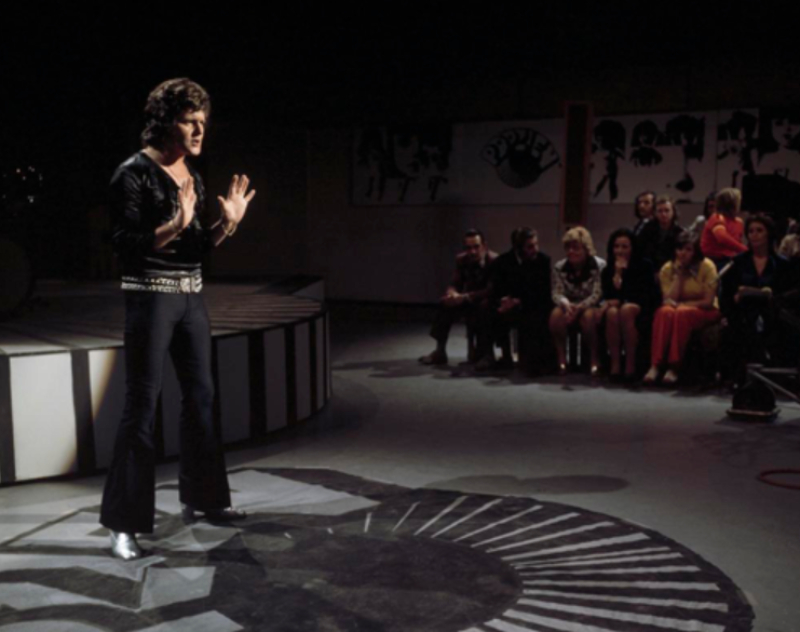 VARA, CC BY-SA 3.0, Wikimedia Commons
VARA, CC BY-SA 3.0, Wikimedia Commons
6. He Paid A High Price For Fame
Despite Page’s touring success with the Crusaders, these years were marred by constant battles with undernourishment and illness from the toll it took living in the back of a van. Soon, Page couldn't endure it anymore.
A particularly bad bout with glandular fever forced him off the road. But funnily enough, this change in lifestyle would prove lucrative for the young guitarist.
7. He Became A Prolific Session Musician
Jimmy Page began to work as a session musician in London and quickly gained a name for himself, both figuratively and literally. The only other notable session guitarist in London at the time shared a first name with Page—Big Jim Sullivan—so the younger Jim became known as Lil’ Jim Pea.
His career as a session musician in full swing by the mid-60s. Page would end up playing guitar on records by The Who, The Kinks, and The Rolling Stones, amongst countless others. He even contributed incidental music to The Beatles’ 1964 film A Hard Day’s Night.
8. He Played On A Famous Theme
Shirley Bassey recorded the classic theme for the James Bond movie Goldfinger in the iconic Abbey Road Studios in 1964 with the John Barry orchestra—which featured Jimmy Page on guitar. Page later reflected that this track was one of his favorites from his early, pre-Zepp career.
But Page didn’t feel that way about all his sessions—and when he was displeased, he definitely knew how to let people know
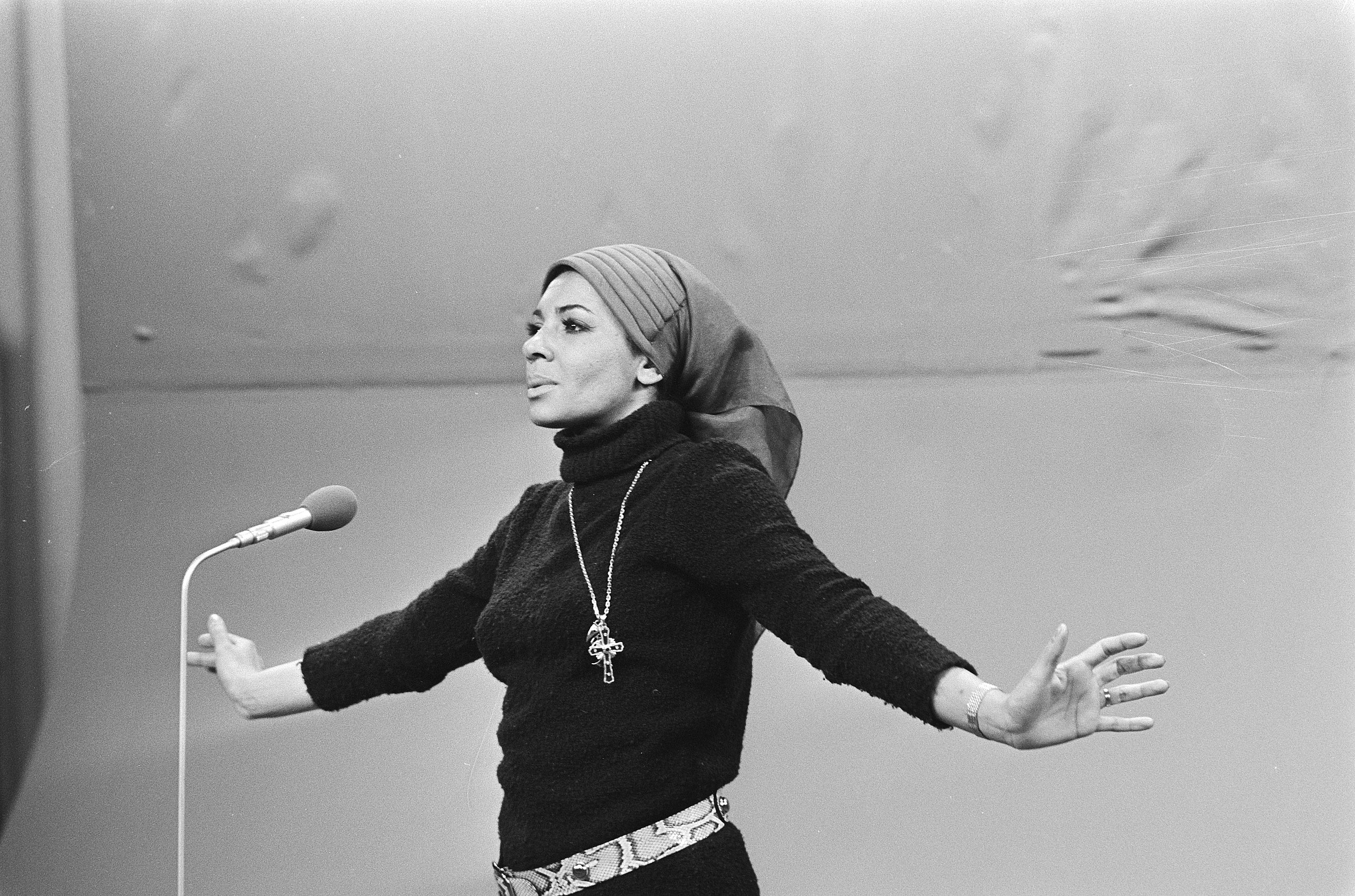 Rob Mieremet, Wikimedia Commons
Rob Mieremet, Wikimedia Commons
9. He Was Ruthless
Page played guitar on Engel Humperdinck’s 1965 hit “Release Me,” though he wasn’t particularly compelled by the track. Humperdinck would later acknowledge this, illustrating Page’s apparent boredom by claiming that the young guitarist would play pocket chess with Big Jim Sullivan in between takes. If Page was growing a little tired, there was a reason for that.
 slydogmania, CC BY 3.0, Wikimedia Commons
slydogmania, CC BY 3.0, Wikimedia Commons

Sign up to our newsletter.
History’s most fascinating stories and darkest secrets, delivered to your inbox daily. Making distraction rewarding since 2017.
10. He Worked Himself Into The Ground
Like touring with the Crusaders, Page started to overwork himself with session work. At one point, he claims, he was doing three sessions a day, five days a week—no easy task when most tracks require multiple takes of playing the same thing. Such was his presence in the scene that some estimate he played on 50-90% of tracks recorded in England between 1963 and 1965.
Page finally decided to give up session work after hitting a personal rock bottom—someone asked him to play on some Muzak. His next move stunned the music industry.
 Michael Ochs Archives, Getty Images
Michael Ochs Archives, Getty Images
11. His First Band Was Already A Supergroup
In 1966, after being courted by various members of the band for a few years, Page finally joined The Yardbirds, a supergroup that had previously featured none other than Eric Clapton on guitar. While Clapton and Page knew one another, they never shared a stage as members of The Yardbirds. But Page’s time in the band did overlap with that of Jeff Beck, another guitarist considered among the greatest of all time.
It wasn’t the only time Page had flirted with a supergroup membership—but something more lasting came from his previous attempt.
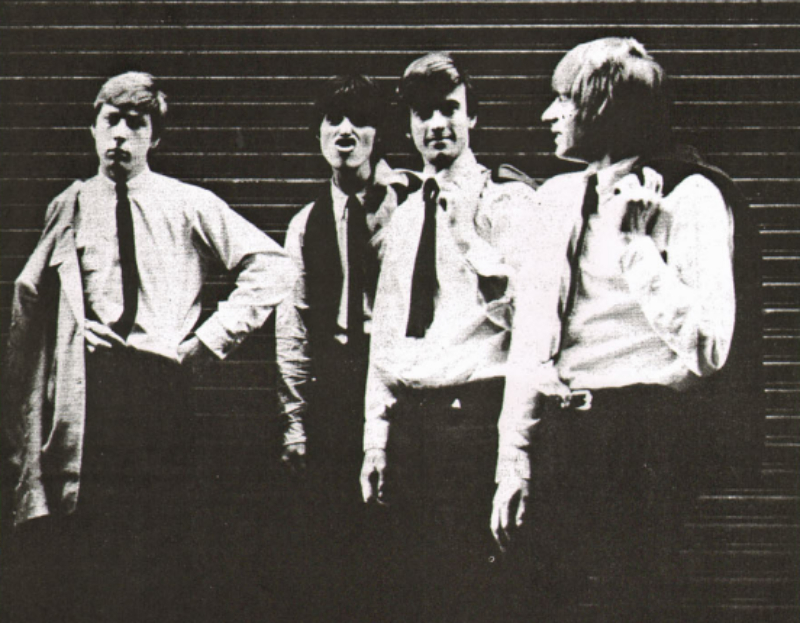 KRLA Beat/Beat Publications, Inc., Wikimedia Commons
KRLA Beat/Beat Publications, Inc., Wikimedia Commons
12. His Most Famous Band Was Named By Keith Moon
Just before joining The Yardbirds, Page had a jam session with Jeff Beck as well as John Entwistle and Keith Moon of The Who, with the intention of forming a supergroup. While the group never did get off the ground, Keith Moon suggested they name the group “Lead Zeppelin” after Entwistle joked that the project would go down like a lead balloon.
Zeppelin manager Peter Grant would later suggest dropping the “a” in “Lead” so that it wouldn’t be mispronounced as “Leed Zeppelin”. But the road to Led Zeppelin was far from smooth.
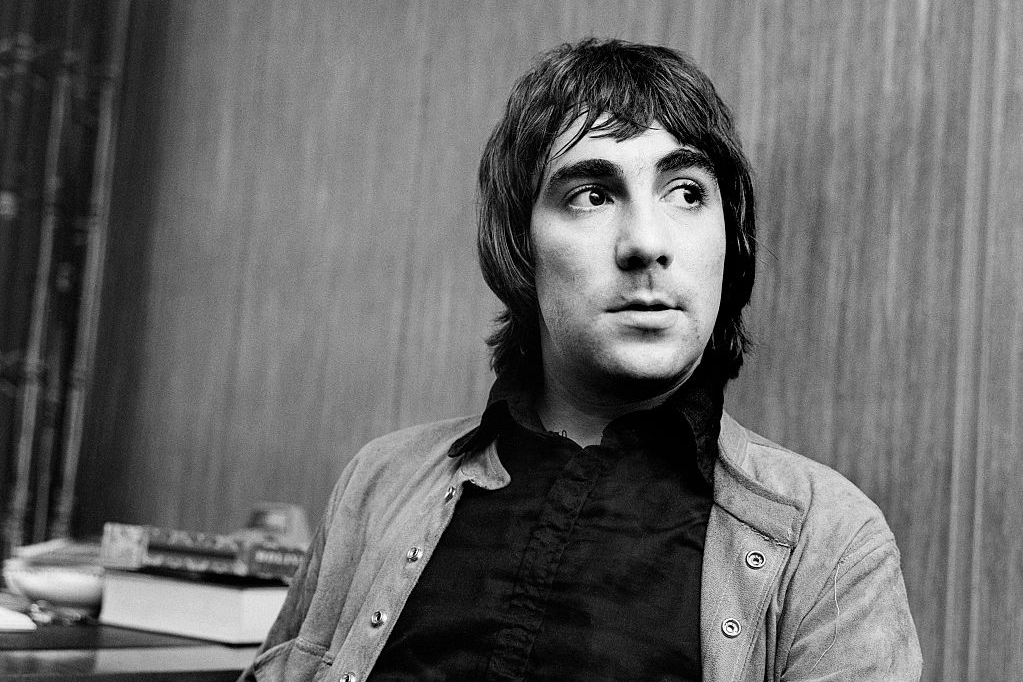 George Wilkes Archive, Getty Images
George Wilkes Archive, Getty Images
13. He Scraped Together A Band
By 1968, all but one member of The Yardbirds had left the band, leaving Page on his own to fulfill some Scandinavian tour dates they were contractually obligated to perform. With his back against the wall, Page brought anyone he could find.
Page enlisted the help of his friend and fellow session musician John Paul Jones on bass; they also recruited relatively unknown singer Robert Plant and drummer John Bonham, and the quartet toured Scandinavia as The New Yardbirds. It was a date with destiny.
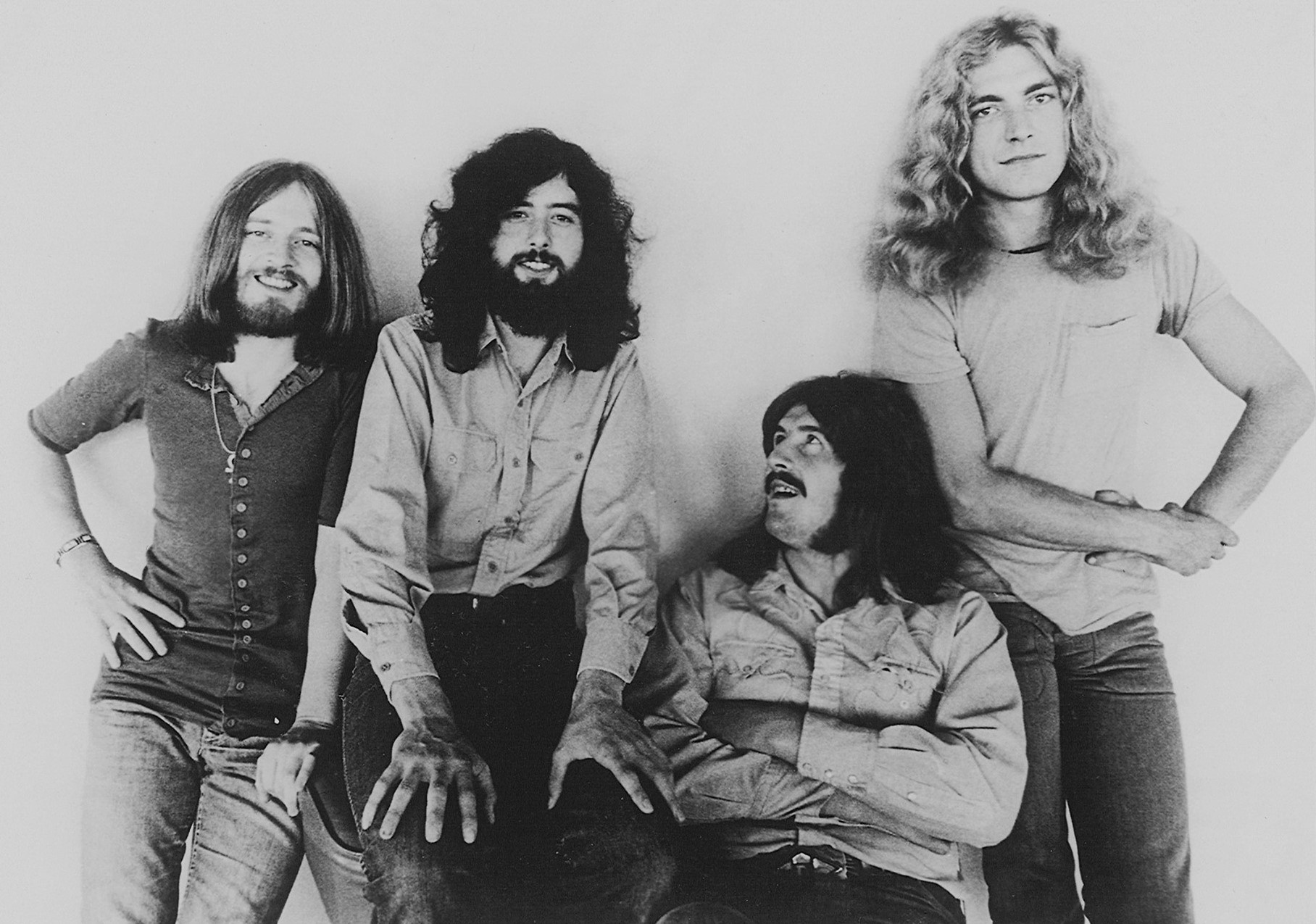 Atlantic Records, Wikimedia Commons
Atlantic Records, Wikimedia Commons
14. He Took An Expensive Gamble
The New Yardbirds’ shows were overwhelmingly well received, and Page was determined to get the band’s sound and energy on wax as soon as possible, this time under the name “Led Zeppelin”. Page was so committed that he funded the band’s entire first album, which was recorded in only 36 hours, from his own savings earned as a session musician. It worked out better than he could have imagined.
 Heinrich Klaffs, CC BY-SA 2.0, Wikimedia Commons
Heinrich Klaffs, CC BY-SA 2.0, Wikimedia Commons
15. His Band Got The Biggest Record Deal Ever, Completely Blind
After recording their first album, Atlantic Records offered Page and Led Zeppelin the biggest record contract of its kind at the time: $143,000 in advance (that’s around $1,253,000 in today’s money), along with complete autonomy on album release, content, design, touring schedules, and promotion, including all future albums.
Incredibly, this was all without the record label having heard a single piece of music, live or recorded, by the band. But there was one very scary presence in Zeppelin's corner.
 Jim Summaria, CC BY-SA 3.0, Wikimedia Commons
Jim Summaria, CC BY-SA 3.0, Wikimedia Commons
16. His Manager Was One Tough Cookie
Page had managed to enlist the managerial talents of one Peter Grant, who became known as one of the most ruthless managers in rock history. Characterized by his intimidating size and weight, Grant was a former bouncer and wrestler, and was instrumental in improving payment and conditions for all musicians dealing with concert promoters.
Grant would also intimidate record store owners who dealt in unauthorized bootlegs, and Page’s financial and physical security was largely unthreatened thanks to his tough manager. But there were some threats not even Grant could predict.
17. An Aristocrat Went After His Band
In 1970, Led Zeppelin were forced to play under a different name for a show in Copenhagen after they were threatened with legal action by Danish countess Eva von Zeppelin. The aristocrat allegedly argued, "They may be world famous, but a couple of shrieking monkeys are not going to use a privileged family name without permission".
Page and the band conceded. The name they decided to use instead? The Nobs.
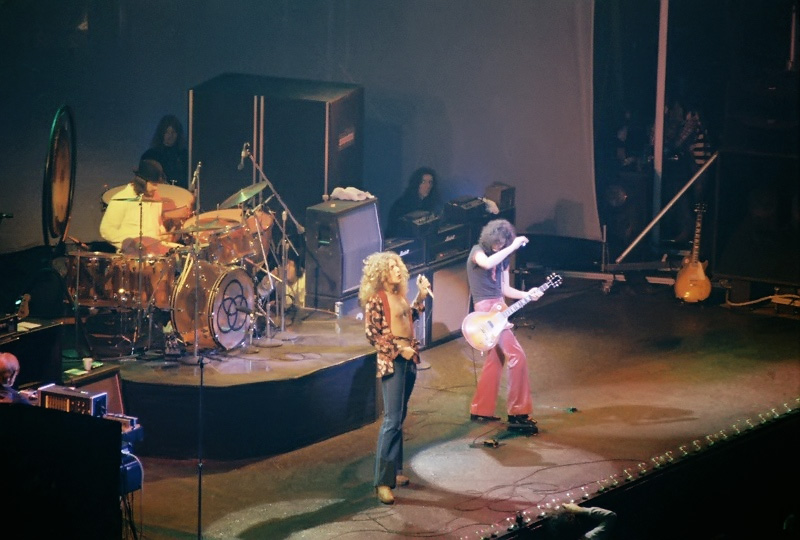 more19562003, CC BY 2.0, Wikimedia Commons
more19562003, CC BY 2.0, Wikimedia Commons
18. He Was A Fashion Icon
Page’s Rock God persona had a massive impact on the fashion of the 1970s, particularly his “Dragon Suit”. The perceived coolness of Zeppelin’s image of aggressive male sexuality inspired many rock bands that followed in their wake to adopt similar styles and looks. The band are said to have laid the foundation for the big hair glam metal look of the ‘80s, and their tight clothes and flared pants inspired the fashion of artists such as Jack White and Kings of Leon all the way into the 2010s.
But their rock and roll lifestyle went far beyond their clothes.
 Graham Wiltshire, Getty Images
Graham Wiltshire, Getty Images
19. He Was Known For His Off-Stage Debauchery
Page and his band gained a notorious reputation for their off-stage excess while on tour. There are countless stories of groupies, private jets, destruction of property, hotel room trashing, and lifetime bans from specific hotels. One infamous story involving a young groupie and a shark is simply too shockingly explicit to relay here, and has to be read (at your own discretion) to be believed.
But through our modern perspective today, this “harmless fun” sometimes crossed unforgivable lines.
 Bruce Alan Bennett, Shutterstock
Bruce Alan Bennett, Shutterstock
20. When He Was 28, He Dated A 14-Year-Old
In Los Angeles for Led Zeppelin’s 1972 US tour, Page began dating 14-year-old Lori Mattix. Mattix, also known as Lori Maddox or Lori Lightning, was frequenting clubs on the Sunset Strip in Hollywood at the time, and known as a “baby” groupie, a woman new to the scene and looking to integrate into the rock and roll lifestyle of famous musicians. It was the beginning of some dark trouble.
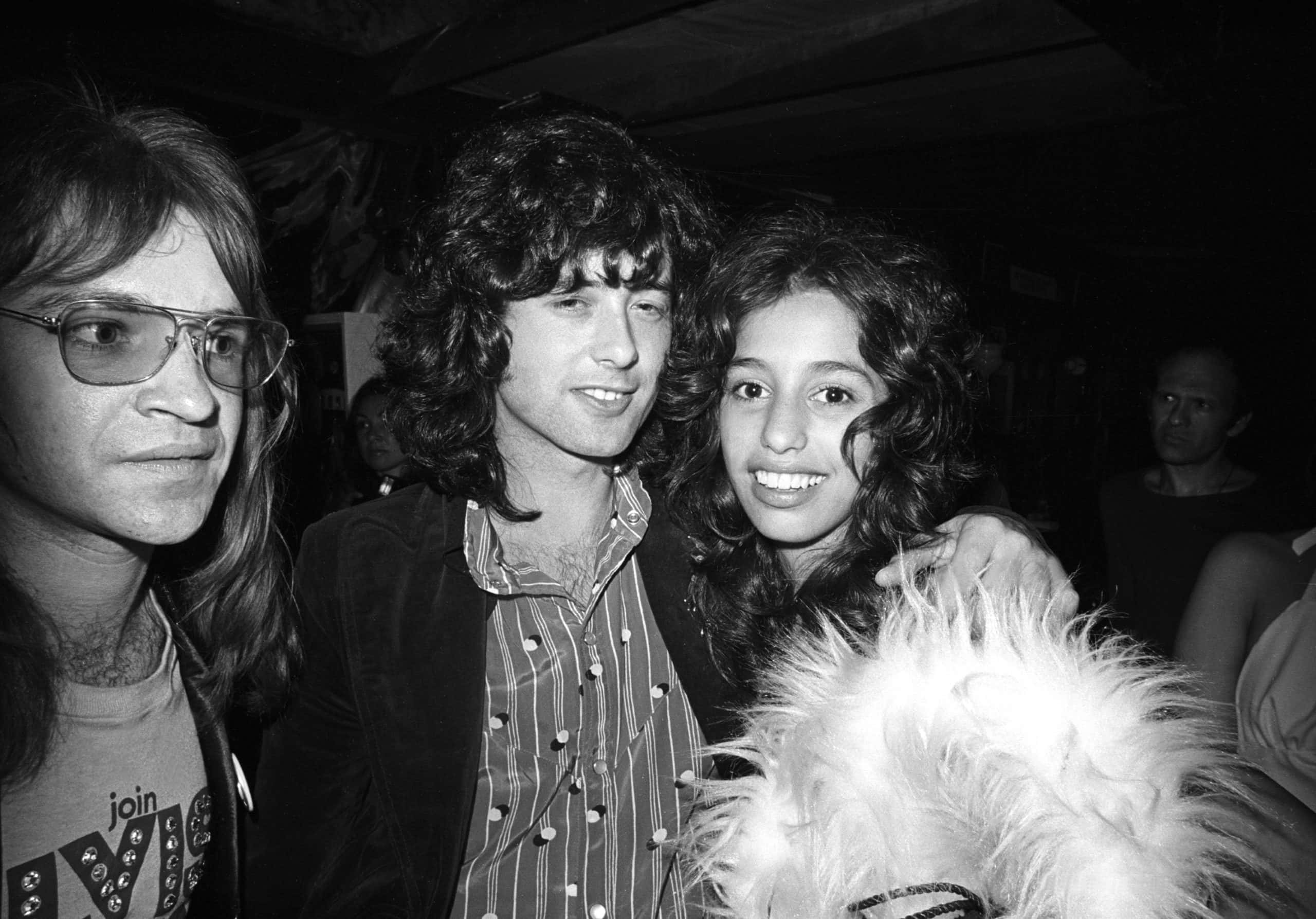 Michael Ochs Archives, Getty Images
Michael Ochs Archives, Getty Images
21. He “Kidnapped” A Girl
After Page heard about her reputation and saw a picture of her, Mattix claims she was “basically kidnapped” by the band’s tour manager and brought to Page’s hotel room. They quickly began a relationship that lasted more than two years.
While there’s no telling what Page’s emotional connection was to Mattix, his other behavior around this time only makes it more suspect.
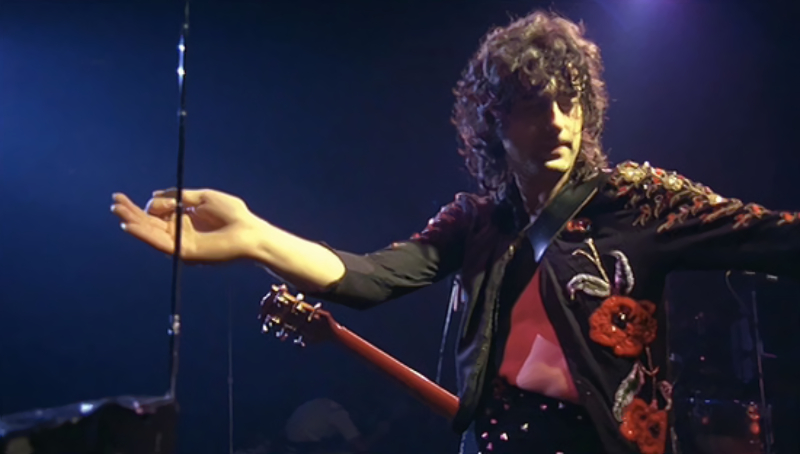 Open culture, CC BY-SA 4.0, Wikimedia Commons
Open culture, CC BY-SA 4.0, Wikimedia Commons
22. He Kept A Dirty Secret
Throughout his dealings with Mattix, Page kept their relationship very under wraps—it was, after all, illegal. He would confine Mattix to his hotel room and only return between shows to spend time with her, essentially treating her as an on-call girlfriend. Mattix would eventually break up with him—but not for the reason you might think.
 Dana Wullenwaber, CC BY-SA 2.0, Wikimedia Commons
Dana Wullenwaber, CC BY-SA 2.0, Wikimedia Commons
23. She Kicked Him To The Curb
Mattix was only finished with the unbalanced relationship when she caught Page in bed with another (adult) woman. Afterward, she claimed that for years she thought they were genuinely in love and that she didn’t see a problem with the age gap.
Nonetheless, she began to reconsider the power dynamics of the relationship in the wake of the #MeToo movement, stating she would not wish the situation she found herself in on anyone’s daughter. Page’s behavior is, of course, inexcusable, but may be understood through other troubles in his life.
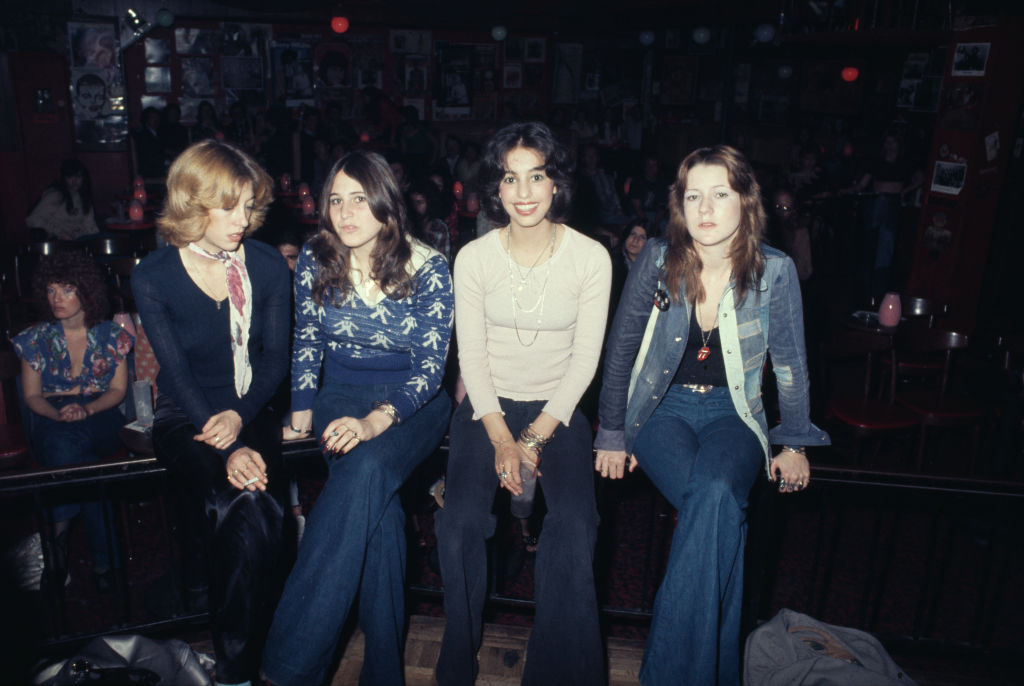 Michael Ochs Archives, Getty Images
Michael Ochs Archives, Getty Images
24. He Took Up A Horrifying Habit
Page claims he doesn’t really remember much of the band’s 1973 North American tour due to excessive substance use. He would later begin to use intravenously in 1975 and became addicted for about seven years. During this time, his use began to negatively affect his guitar playing and he lost a significant amount of weight. But there were even more insidious consequences, too.
 Bruce Alan Bennett, Shutterstock
Bruce Alan Bennett, Shutterstock
25. He Nearly Ruined His Career
In the haze of his addictions, Page also grew isolated from his bandmates, and his influence on Zeppelin’s 1978 album In Through the Out Door is noticeably diminished (with bassist/keyboardist John Paul Jones picking up his songwriting slack). He eventually overcame this seven-year habit in the early ‘80s, but that would not be the end of his woes.
 Bruce Alan Bennett, Shutterstock
Bruce Alan Bennett, Shutterstock
26. He Escaped Jail Time
On two separate occasions, in 1982 and ’84, Page was detained for yet more substance use. He got off lightly, likely due to his status as a famous rock musician. The first offense carried a year-long conditional discharge—essentially a probationary release—and his second offense, usually punishable with jail time, only resulted in a fine.
When it came to losing money, though, this had nothing on one infamous event from Zeppelin’s career.
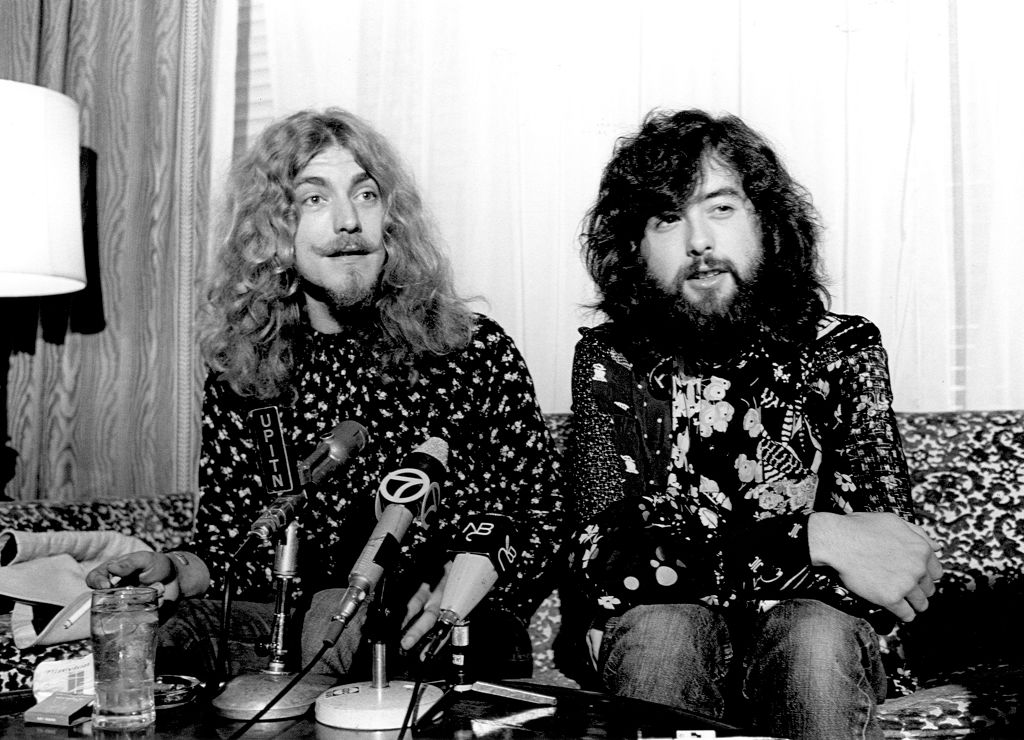 Michael Ochs Archives, Getty Images
Michael Ochs Archives, Getty Images
27. His Band Had A Massive Amount Of Money Stolen
Before the final performance of Zeppelin’s record-breaking 1973 North American tour, the band had their gate receipt money stolen from a safe deposit box of their hotel. The amount of money swiped totaled $180,000 ($1,235,000 in today’s money). I’m sure Page is glad he’s forgotten that part of the tour. But it was far from the worst thing he'd experience while touring.
28. He Had A Gruesome Accident
One week before their 1975 North American tour, Page caught his left ring finger in a train door, breaking the tip. This was a disaster for guitarist. He was forced to perfect his “three-and-a-half-finger technique” for live shows and forced the band to temporarily drop live staples “Dazed and Confused” and “Since I’ve Been Loving You”.
Page treated the pain in a very on-brand way: with codeine and Jack Daniels.
29. His Band’s First Year Was Prolific
Page had clearly gotten over the frailty that had characterized his previous attempt at touring with Neil Christian and the Crusaders. In Led Zeppelin’s first year as a band alone, they played four UK tours, four US tours, and released two full-length albums. Many of their live shows would last up to 4 hours. Chunks of these shows would be taken up by long performances of single songs—and there was one in particular everyone waited for.
30. He Performed A Song For 43 Minutes
“Dazed and Confused” off Zeppelin's first album became known as the band’s signature live song for its long, drawn-out, Page guitar solo-filled performances. Shorter versions of the song performed live clocked in at around 20 minutes, and on at least one known occasion at the LA forum in 1975, the band performed a whopping 43-minute version of the song.
These versions would be an excuse for Page to show off a specific—and bizarre—kind of musical prowess.
31. He Had Unbelievable Technique
On these long versions of “Dazed and Confused,” Page was known to produce a violin bow on stage and play the strings of his guitar with it, combining the technique with effects pedals to create some unique sounds. On other occasions, including when the band performed their smash hit “Stairway to Heaven”, Page would play his signature double-necked guitar.
He may not have invented any of these techniques, but he certainly popularized and expanded on them in innovative ways.
 Robert Knight Archive, Getty Images
Robert Knight Archive, Getty Images
32. He Basically Invented Metal Music
Jimmy Page and Led Zeppelin are credited with inventing heavy metal music. While the band have disputed this definition of their music in the past, many metal historians consider their second album to be the starting point for heavy metal—and this sound was largely a product of Page’s musicianship and production techniques.
But Page wouldn’t always stick to heavy music, and his fans wouldn’t always stick with him for it.
33. He Went Through A Transformation
Retreating to a remote cottage in Wales in the summer of 1970, Page and Plant got to work writing songs for Zeppelin’s third album and took influence from English and Celtic folk music. This resulted in an album with a much more stripped back and acoustic sound—and when it came out, chaos erupted.
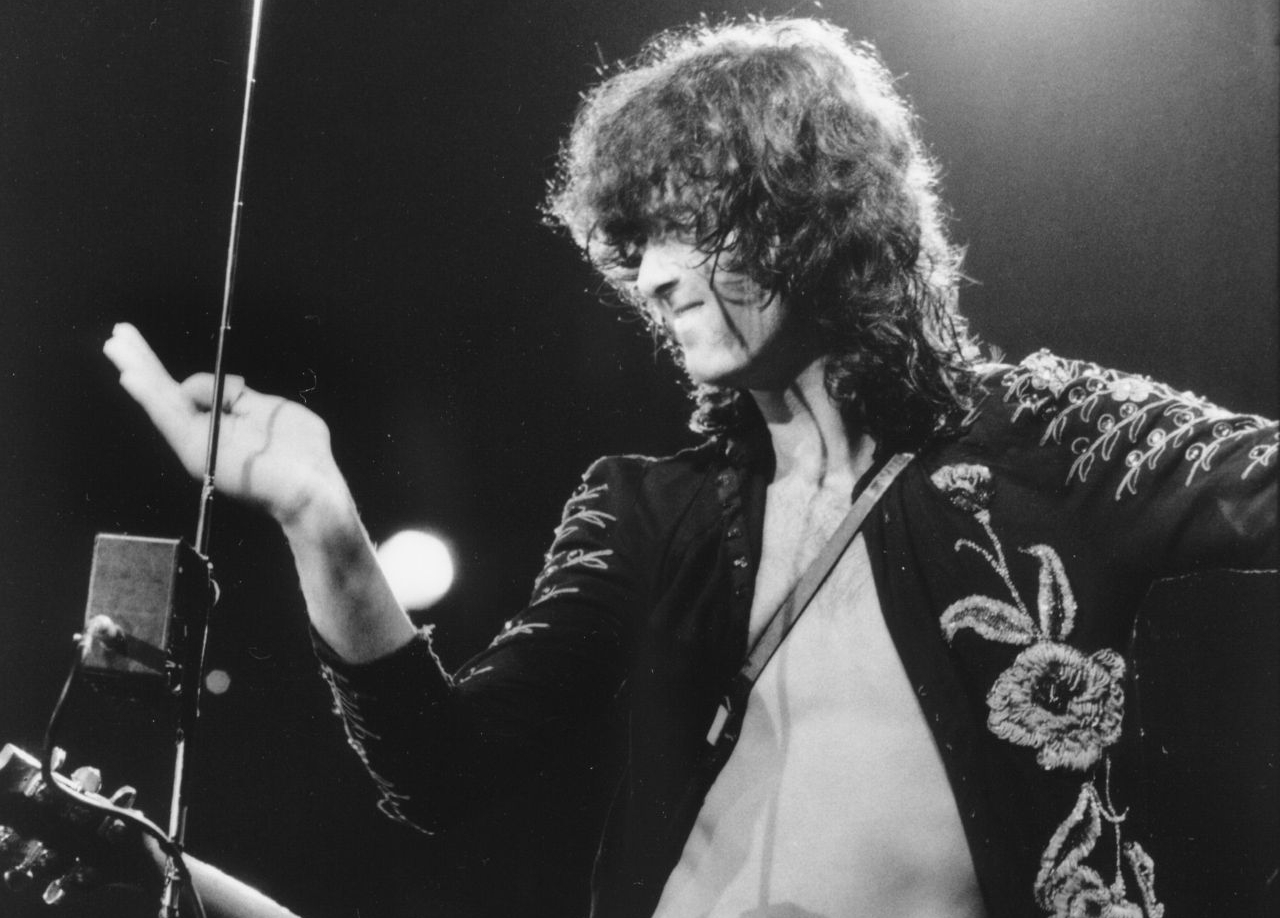 Unknown Author, CC BY-SA 4.0, Wikimedia Commons
Unknown Author, CC BY-SA 4.0, Wikimedia Commons
34. His Fans Rejected Him
Like Bob Dylan’s infamous electric set at the 1965 Newport Folk Festival, Page’s folk experimentation caused his fanbase and much of the music press to turn on him. They were attached to the heavy rock sound established on Zeppelin’s first two albums, and they were not receptive to the softer sound.
This contributed to a developing hostility between Page and the music press, who he saw as attempting to box the band in and discourage experimentation in sound. Page was very precious about the band’s sound and took measures to make sure people knew it.
35. He Made Sure No One Else Would Get Credit For His Work
A quick glance at the credits of each of Led Zeppelin’s albums will reveal that each one was engineered by a different person. This was by design. Page picked up on many recording techniques during his days as a session musician and was very specific about the sound he wanted for the band.
He deliberately chose a different engineer for each album so that no one engineer would get credit for the band’s sound—he wanted everyone to know that the responsibility was all his. But Page was not just iconic for his sound.
36. He Was Hard To Work With
In the early 70s, Page was commissioned by underground film director Kenneth Anger to compose the soundtrack music for his short film Lucifer Rising. Anger, living up to his name, was not satisfied with Page’s contribution and publicly criticized him for it, claiming that, after three years, Page only submitted 23 minutes of music for the 28-minute film, that the music was only “droning” sounds, and that Page was too strung out to satisfactorily complete the project.
Page denied the accusations, the got back at Anger by completely ignoring any association with the film from then on. But there was a particular reason why he was approached to soundtrack such a dark film in the first place.
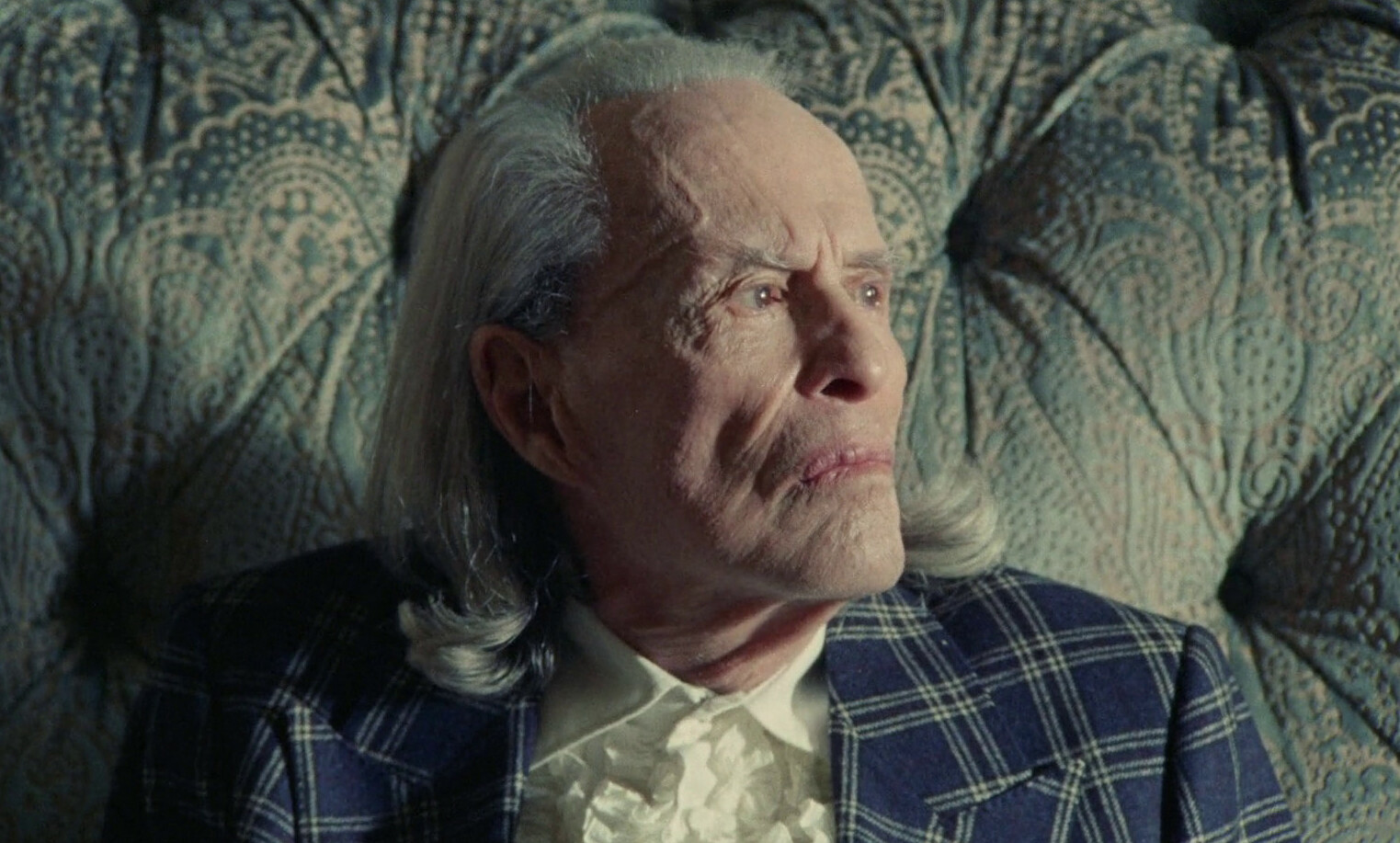 Floria Sigismondi, , CC BY 3.0, Wikimedia Commons
Floria Sigismondi, , CC BY 3.0, Wikimedia Commons
37. He Was An Occult Enthusiast
Page took a massive interest in the occult from a young age after reading Magick in Theory and Practice by famed occultist Aleister Crowley, going so far as to later purchase a manor near Loch Ness that was formerly owned by Crowley. He was particularly fascinated with Crowley’s theory of self-liberation, a philosophy of removing any so-called restrictions on one’s personhood.
This outlook may have been responsible for some of Page’s more hedonistic behavior. Page would weave the occult into not only his personal life, but his professional one too.
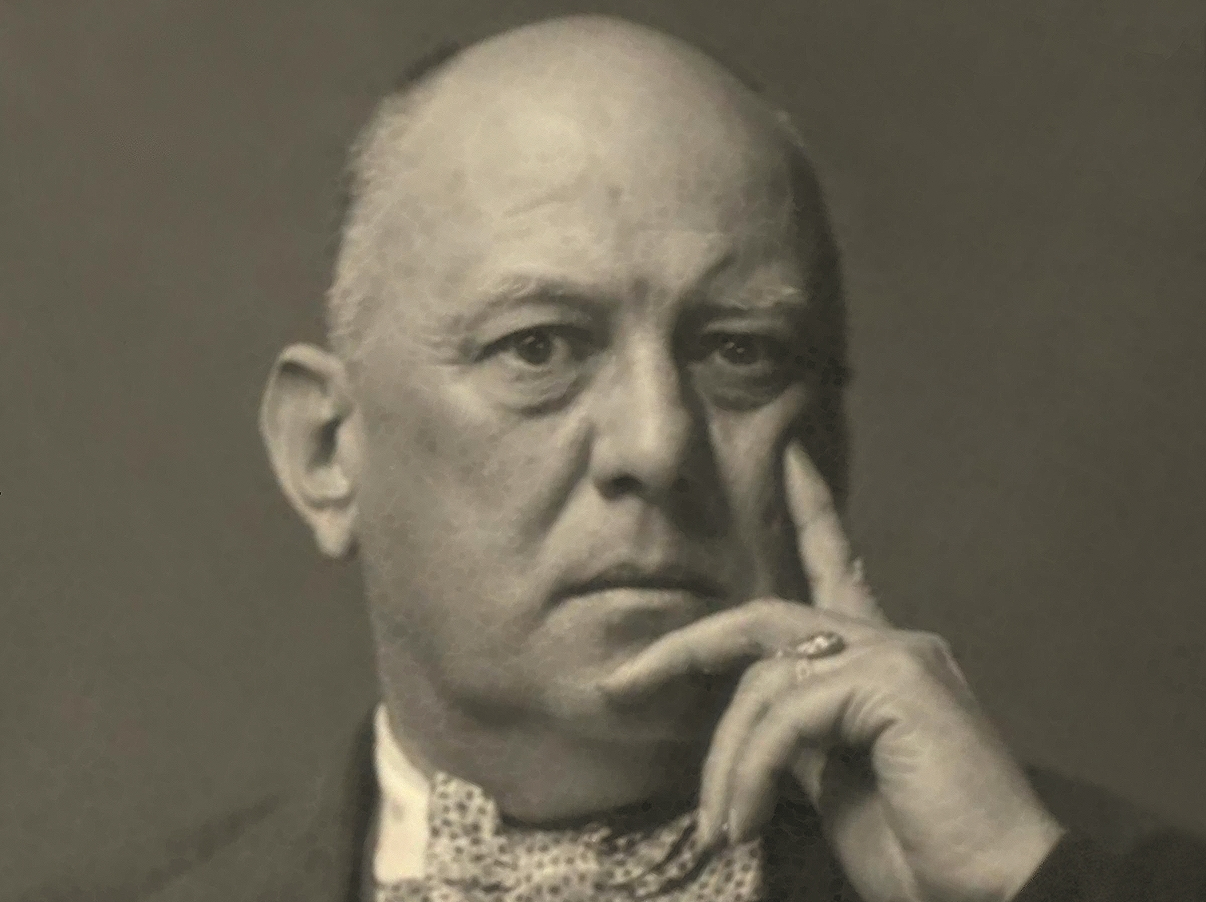 Aleister Crowley, Wikimedia Commons
Aleister Crowley, Wikimedia Commons
38. He Was An Astrology Girlie
Page’s interest in the occult also led him to a fascination with astrology, which was initially associated with dark magic. His famous Dragon Suit featured the zodiac signs for Capricorn, Scorpio, and Cancer, which respectively are his Sun, Ascendant, and Moon signs. Considering some conversations I’ve had with certain people in 2024, Page was ahead of his time on that one, but his obsession continued...
39. He May Secretly Be A Little-Known Painter
Along with the symbols, the inside of record sleeve for Led Zeppelin’s fourth album also contains a painting based on the traditional Tarot card design for “The Hermit”. The artwork is attributed to the painter Barrington Colby, but almost nothing is known about Colby outside of this work, and many fans have speculated that Colby may in fact be Page himself.
He did have an interest in painting as a young man and briefly attended art college. Further evidence may be found in Zeppelin’s concert film The Song Remains the Same, where in a fantasy sequence, Page transforms into the Hermit character featured in the record sleeve. But the film itself came with attendant controversy of its own.
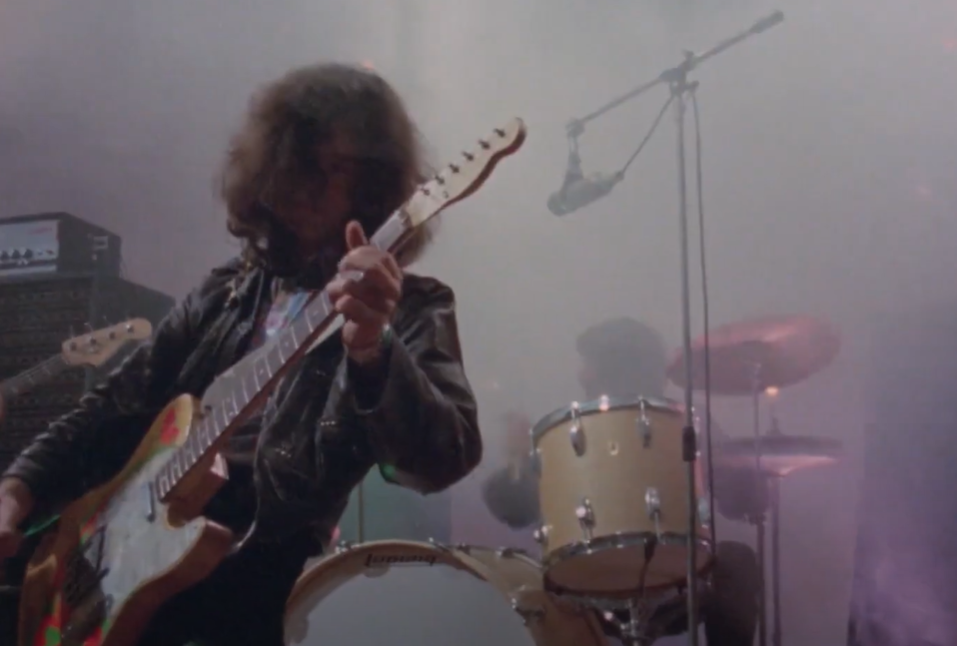 Sony Pictures Classics, Becoming Led Zeppelin (2021)
Sony Pictures Classics, Becoming Led Zeppelin (2021)
40. He Avoided Paying Taxes In His Home Country
The Song Remains the Same premiered in 1976 but was not very well received by fans and critics, particularly in Page’s home country of the United Kingdom. The reasons for the film’s poor reception may have gone beyond the content of the movie—Zeppelin had been unwilling to tour there from 1975 due to their tax exile status.
In other words, the band refused to tour in the UK to avoid paying what they perceived as high taxes on their concert earnings. But this was the least of their worries: Zeppelin’s last few years as a band were rocked by personal turmoil. On September 24, 1980, it all culminated in a shocking tragedy.
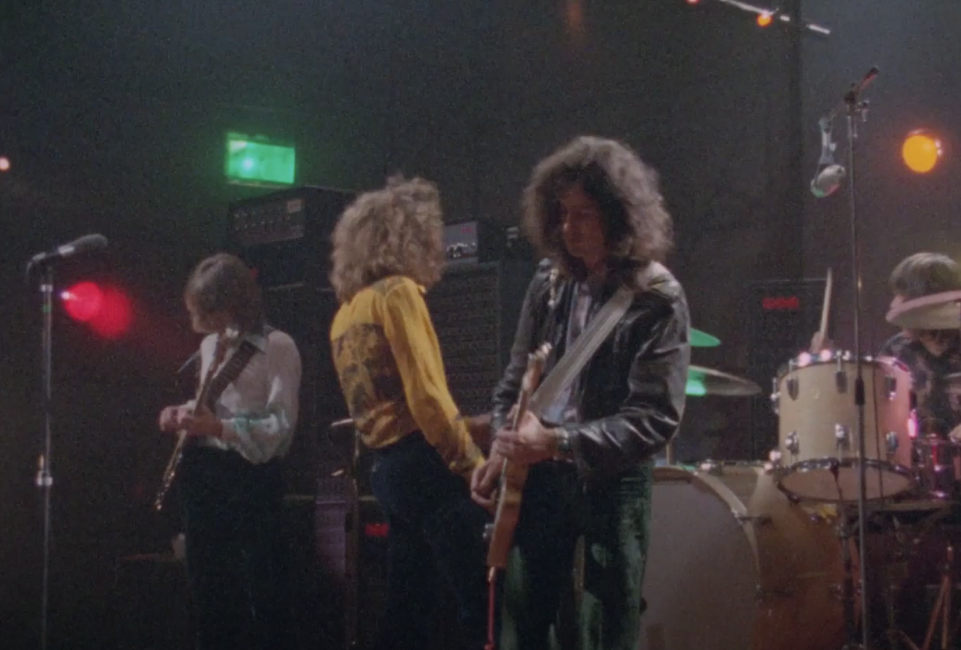 Sony Pictures Classics, Becoming Led Zeppelin (2021)
Sony Pictures Classics, Becoming Led Zeppelin (2021)
41. His Drummer Went On A Dangerous Bender
That morning, Zeppelin’s drummer John Bonham was picked up by an assistant who was scheduled to bring him to rehearsals for the band’s upcoming tour. Bonham requested they stop for breakfast…where he proceeded to down four quadruple vodkas and a ham roll.
He continued drinking heavily throughout the rehearsals that day, until the band decided to retire to Page’s house nearby. Then disaster truly struck.
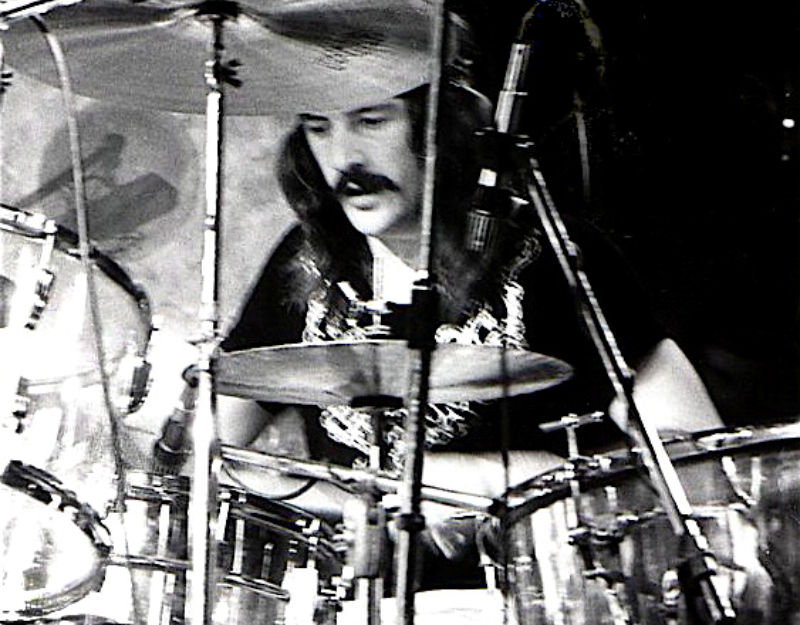 Dina Regine, CC BY-SA 2.0, Wikimedia Commons
Dina Regine, CC BY-SA 2.0, Wikimedia Commons
42. He Got Shocking News
When the band woke up the next morning, it was to a horrific piece of news: Bonham was found cold in Page’s house after asphyxiating on his own vomit. Shocked, the band cancelled their upcoming tour, only to quickly realize that would never be enough. Shortly afterwards, they decided to end the Led Zeppelin project entirely. Page was devastated, and it sent him into a dark place.
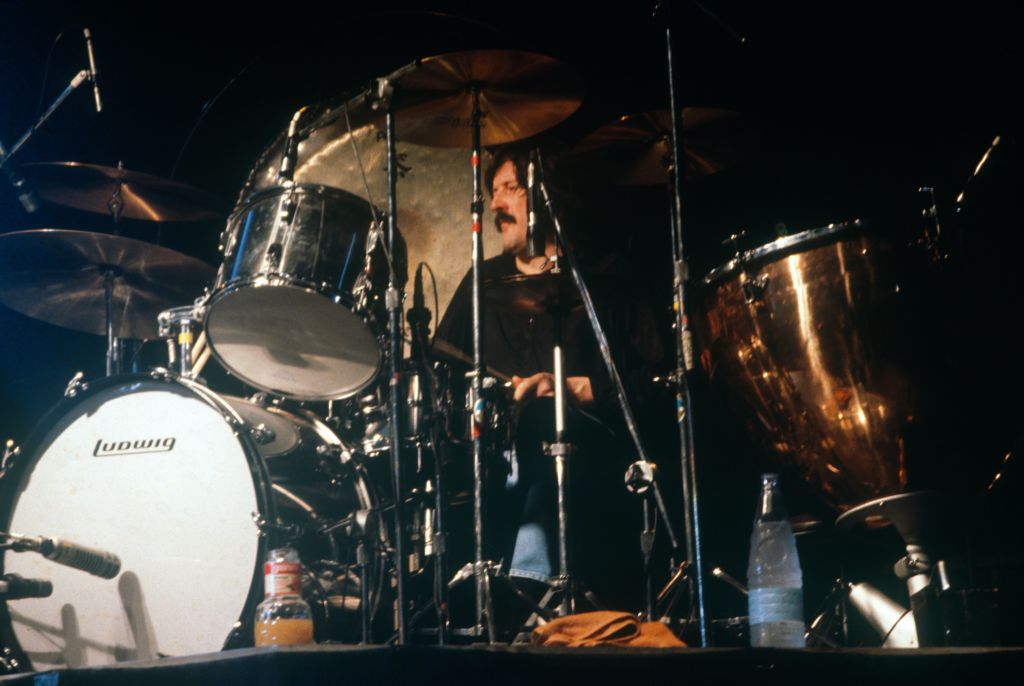 FG/Bauer-Griffin, Getty Images
FG/Bauer-Griffin, Getty Images
43. He Almost Quit Music
Following his friend’s death, friends and family grew worried about Page’s mental being. He kept using after the tragedy and soon began to isolate himself. He later claimed that he didn’t even pick up his beloved guitar for almost two years. When he finally emerged from this sorrow, Page decided it was time to try and get a new musical project off the ground. But Led Zeppelin was once in a lifetime.
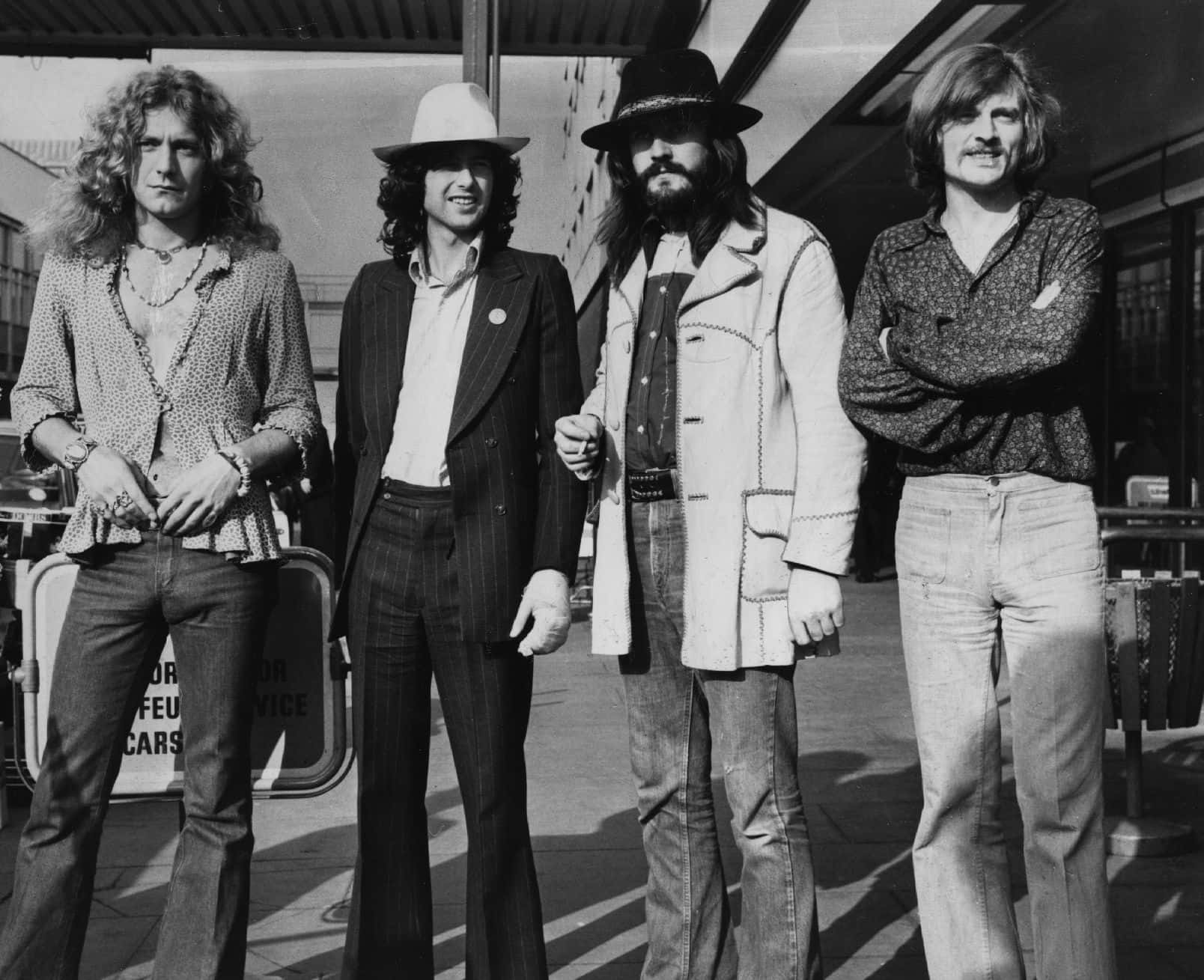 Evening Standard, Getty Images
Evening Standard, Getty Images
44. He Attempted Another Supergroup
Page’s first go at a new musical project was to team up with former members of the band Yes, with Chris Squire on bass and Alan White on drums. The supergroup rehearsed a few times but ultimately the project did not lead anywhere.
They did at least manage to come up with a clever name for the group: XYZ, which stood for eX-Yes-Zeppelin.
45. His New Band Saved Him
Page’s next attempt at musical fulfilment saw him join Paul Rodgers of Bad Company fame to form a band called The Firm. Bad Company were former labelmates of Zeppelin, and Rodgers was dealing with the fallout of a bitter split with the band so Page thought he might know a little about what he was going through.
They released two albums before disbanding but Page claimed that the project saved him from those dark years following Bonham’s death. He was finally back on his feet musically…until he got knocked down again.
46. He Gave An Infamously Bad Performance
In 1985, the three remaining members of Led Zeppelin reunited to perform with Phil Collins on drums for Bob Geldof’s Live Aid charity concert. However, the show was riddled with issues: they had had no time to practice with the fill-in drummer, Page was given an out-of-tune guitar by a stagehand and struggled with it the entire performance, and Robert Plant’s voice was unusually hoarse.
So bad was the performance that the band opted not to include it on the Live Aid DVD released in 2004, instead making a donation to the charity benefiting from the DVD sales. The performance left a bad taste, and the band members’ relationships began to sour too.
47. He Snubbed A Founding Band Member
Page and Plant reunited in 1994 for an acoustic concert as part of MTV’s Unplugged series called “UnLedded”. The performance was well received, and the duo rode the momentum and embarked on a world tour. There was just one problem: John Paul Jones, the remaining member of the band who founded Led Zeppelin with Page, was never even informed the reunion was taking place.
But Jones ended up getting a scathing revenge.
 Jeff Turner, CC BY-SA 2.0, Wikimedia Commons
Jeff Turner, CC BY-SA 2.0, Wikimedia Commons
48. His Bandmate Hit Back
After watching his band’s reunion from the sidelines, John Paul Jones publicly expressed his disappointment and hurt at the snub. He didn’t leave it at that, either. When Led Zeppelin were inducted into the Rock and Roll Hall of Fame in 1995, Jones remarked, upon acceptance of the award, "Thank you, my friends, for finally remembering my phone number". It was as awkward as it sounds.
 Klaus Hiltscher, CC BY-SA 2.0, Wikimedia Commons
Klaus Hiltscher, CC BY-SA 2.0, Wikimedia Commons
49. He Could Be Spiteful
Page joined Southern rock band The Black Crowes on tour in 1999, appearing with them on an acclaimed live album. However, Page unexpectedly left the tour with several shows to go, citing back problems. He later revealed the truth to Crowes drummer Neil Gorman.
Page had offered to write songs with the Crowes’ two main songwriters, brothers Chris and Rich Robinson. Rich allegedly blew him off, reportedly stating “No thanks, we don’t need more songs!” Page was deeply insulted and left the tour. Gorman, upon hearing the story, told the Crowes’ manager “I’m driving to Connecticut, and I’m going to kill Rich in his home”.
50. He Had A Public Beef With The Other Original Band Member
As if the John Paul Jones snub of the 90s wasn’t enough, Page found a way to annoy Robert Plant as well. After an acclaimed reunion performance with the original members of Led Zeppelin (plus Bonham’s son Jason on drums) in 2007, rumors of a full reunion tour spread. Page, Jones, and Jason Bonham were reportedly game, but Plant had touring commitments with Alison Krauss to fulfill and told them they would have to wait.
Page and Jones wanted to strike while the iron was hot and began to search for a replacement for Plant. The reunion tour never did take place, but Plant expressed disappointment at his band mates’ intention to replace him, making Page two for two on hurting the feelings of the surviving members of Led Zeppelin.


